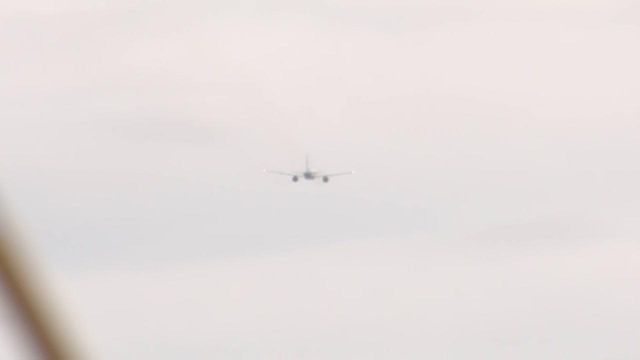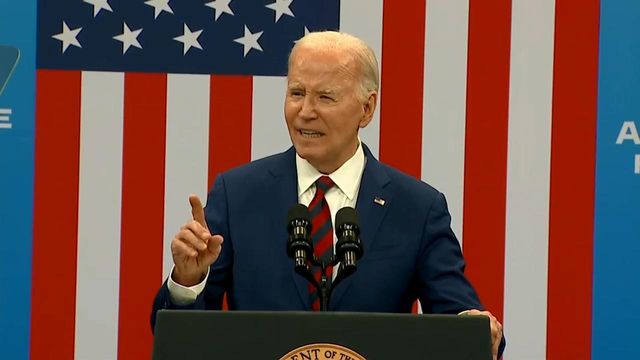In Capital, an End To the Anticipation In a Very Long Day

WASHINGTON — The president’s lawyer had no clue when the report might arrive, or if it even would.
Seated alone amid the tourists at the Trump International Hotel a few blocks from the White House on Friday, Rudy Giuliani scrolled through a tablet with one hand and held a cellphone in the other as he waited for the news that the long-awaited report by Robert Mueller, the special counsel investigating the Trump campaign’s ties to Russia, was done and had finally been delivered to the Justice Department.
“Keep in touch,” he said to the person on the other end of the phone. “Tell me what’s going on, OK?”
Like the rest of Washington, Giuliani was tired of waiting.
“They said it was going to be at noon or 12:30,” Giuliani told a reporter who approached him around 1:30 p.m. According to his sources — according to everyone’s sources — Mueller was late to deliver on a report that had enthralled the capital, bedeviled the president and, at times, enticed the nation.
As the hours ticked by, it seemed as if the report might never come. But at some point during the afternoon, unbeknown to the curious public and TV camera crews, a security officer from the special counsel’s office arrived at the Justice Department to deliver the report to Rod Rosenstein, the deputy attorney general. Within minutes, it was in the hands of William Barr, the attorney general.
At 4:05 p.m., a thunderclap rumbled around the capital, and hail began to fall. Fifty-five minutes later the skies cleared, and it was announced that Barr had finally received the report. And by the time Barr was sitting in his office on the fifth floor of the Justice Department on Friday night, reading the report — he was among a few people, including Rosenstein, who had access to it — Giuliani, who had been in the dark for much of the day, had changed his tone.
“We are confident the attorney general will make the right decision,” Giuliani said in a statement. “He has to consider the legal matters and rules. I’m confident he’ll make the right call.”
The assurance of the report’s delivery was the capstone to a day marked by just how little anyone really knew.
Beginning in the early morning, reporters and photographers clustered around the office building just blocks south of the National Mall where the special counsel has offices. At least a half-dozen camera operators positioned themselves outside the building’s garage, hoping to catch a glimpse of Mueller driving his sensible Subaru into a colorless, bureaucratic-looking complex.
“I have the report in my purse!” one woman joked as she walked by.
At one point, as two of Mueller’s investigators left for lunch, they noticed the cluster of cameras and quickly turned to cross the street. By 2 p.m., an increasingly impatient group wanted a sign of something — anything — that could hint at Mueller-related activity a mile away at the Justice Department’s headquarters.
Cameras flashed when two lead prosecutors investigating President Donald Trump for obstruction of justice — James Quarles and Andrew Goldstein — left together in a BMW sedan headed in that direction. Rumors that had hatched about a noon report arrival were scuttled once Barr grabbed lunch in the department’s subterranean cafeteria. Outside, a lone protester got in on the action. The man, who would identify himself only as “T. Pardy,” told a reporter that the special counsel investigation was “the fruit of the poison tree.” He then began to bang on a 5-gallon bucket, screaming “FISA abuse.”
Not everyone took such a theatrical approach to the wait.
Newt Gingrich, an occasional adviser to the president who as House speaker vigorously defended the work of Ken Starr, the independent counsel who investigated President Bill Clinton, said that he had taken a laid-back approach to the report’s arrival.
Gingrich said in an interview that the public should get the chance to see Mueller’s report once it was in Barr’s hands — with “obvious exceptions,” he added.
“First of all, it may be interesting,” Gingrich said. “Second of all, it may actually tell us something.”
A low-key approach was similarly adopted at the White House, starting with the president.
“I have no idea about the Mueller report,” Trump told a cluster of journalists in the morning before boarding Marine One and departing for Mar-a-Lago, his winter retreat in Florida.
As the day drew on, observers on Twitter began placing their bets about the report’s whereabouts, creating fictional explanations about Mueller’s activities. “Robert Mueller sweating in front of his laptop, staring at a Word doc containing only the words ‘The Mueller Report’ and a blinking cursor,” comedian Patrick Monahan wrote on Twitter, trying his hand at fan fiction.
At that point, not even Peter Carr, Mueller’s famously tight-lipped spokesman, could seem to resist the fun people were having: “Ha,” Carr wrote in response to an NBC reporter who sent along Monahan’s tweet.
Back at the White House, a cluster of aides who remained in the West Wing area accessible to journalists turned off the television. They seemed more concerned with a flooding issue that had emerged from Thursday’s rains than the contents of the report or when it might come.
When it finally did come, the White House, which has led Trump supporters in a “witch hunt” chant at various points over the years, struck a relatively formal tone.
“The next steps are up to Attorney General Barr, and we look forward to the process taking its course,” Sarah Huckabee Sanders, the press secretary, said on Twitter. “The White House has not received or been briefed on the Special Counsel’s report.”
But there was one indicator that Mueller’s report was at least somewhere near the back of the president’s mind: Emmet Flood, a lawyer for the president in the special counsel investigation, accompanied him to Palm Beach.
After top Justice Department officials in Washington looked through the report, Barr’s chief of staff, Brian Rabbitt, called Flood just after 4:30 p.m. to let him know that the department had the report and gave Flood a readout of the letter that would be delivered to Congress.
The letter included important details, including the fact that Barr’s summary of Mueller’s key findings could be sent to members of Congress as early as this weekend.
The letter also said that there were no instances when Rosenstein; the former acting attorney general, Matthew Whitaker; or Barr told Mueller that he could not pursue an investigative action. Back at the Trump International Hotel, the speculation began. As she tucked herself into a booth, Kirstjen Nielsen, the secretary of homeland security, told a reporter that she had no idea when the report would come out before an aide shut down the conversation.
At the bar, a pair of state prosecutors in town from Florida were enjoying a glass of wine and watching coverage of the Mueller report on two large televisions — one tuned to CNN, the other to Fox News.
“I’ve stopped being surprised at the allegations,” one of them, Bill Beaver, said, adding that he wanted to see what the report actually contained before making a judgment. “We base our jobs in facts.”









